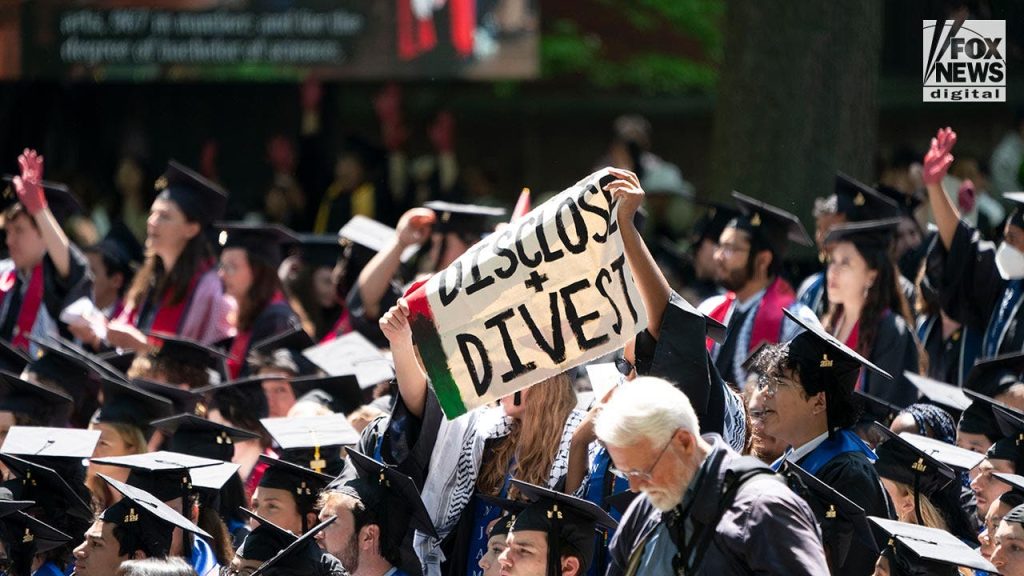Yale University’s graduation ceremony was disrupted by hundreds of students staging a walkout to protest against the college’s policies towards Israel. The protesting students were seen waving Palestinian flags and demanding that the university “disclose and divest.” This protest is part of a trend of anti-Israel demonstrations that have been taking place on college campuses across the country, with some universities even having to cancel their end-of-year ceremonies due to the disruptions. Yale’s President Peter Salovey addressed the protesters in his speech, emphasizing the importance of engaging in dialogue rather than resorting to division and shaming.
Yale’s campus has been a frequent site of anti-Israel protests in recent weeks, with police making dozens of arrests in attempts to clear out encampments. The walkout at the graduation ceremony was just one in a series of disruptions that have been affecting universities nationwide. Drexel University in Philadelphia had to go into lockdown due to protests, while the University of Southern California had to cancel its graduation ceremony entirely. Columbia University, which was one of the earliest centers of the protests, also canceled its school-wide graduation ceremony, citing the difficulties in balancing the rights of protesters with the impact on the Jewish community.
The decision to cancel the traditional commencement ceremonies at these universities was a difficult one, as it represented a recognition of the toll that recent events have taken on the students’ university experiences, as well as the disappointment that many may be feeling. Columbia University President Minouche Shafik expressed regret over the cancellations, acknowledging the conflicts that have arisen between pro-Palestinian protesters and the Jewish community on campus. The protests have highlighted the challenges of balancing free expression and the rights of different groups within the university community.
The protests at Yale and other universities reflect a broader trend of activism and social movements on college campuses, as students seek to bring attention to issues they are passionate about. The walkouts, disruptions, and cancellations show the deep divisions and tensions within these communities, as different groups hold conflicting views and agendas. The protests have sparked debates about free speech, academic freedom, and the responsibilities of universities in managing diverse viewpoints and expressions on campus.
As universities grapple with these challenges, leaders like Yale’s President Peter Salovey emphasize the importance of engaging in dialogue and building bridges between different groups, rather than resorting to division and conflict. While protests can be a powerful way for students to express their views and push for change, it is also crucial for universities to create spaces for constructive conversations and debate. The disruptions at graduation ceremonies are a stark reminder of the complexities and tensions that exist within these communities, and the need for thoughtful and inclusive approaches to addressing them.


